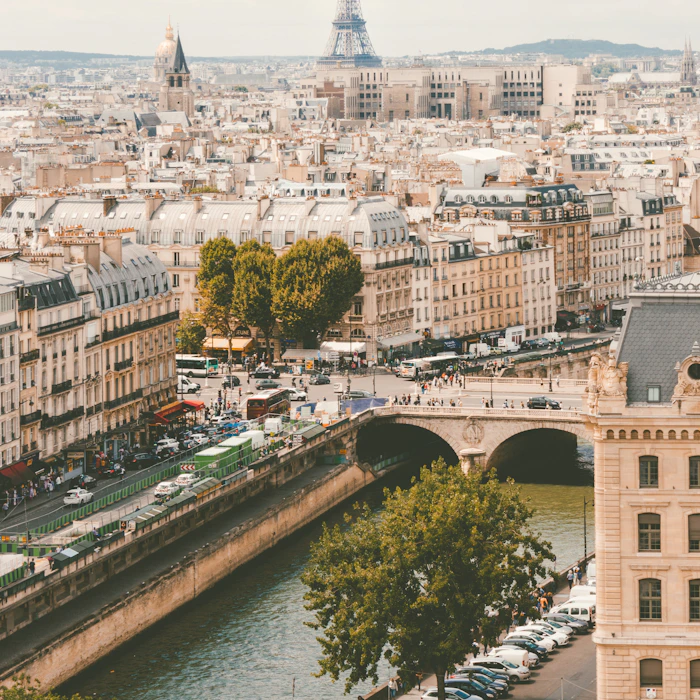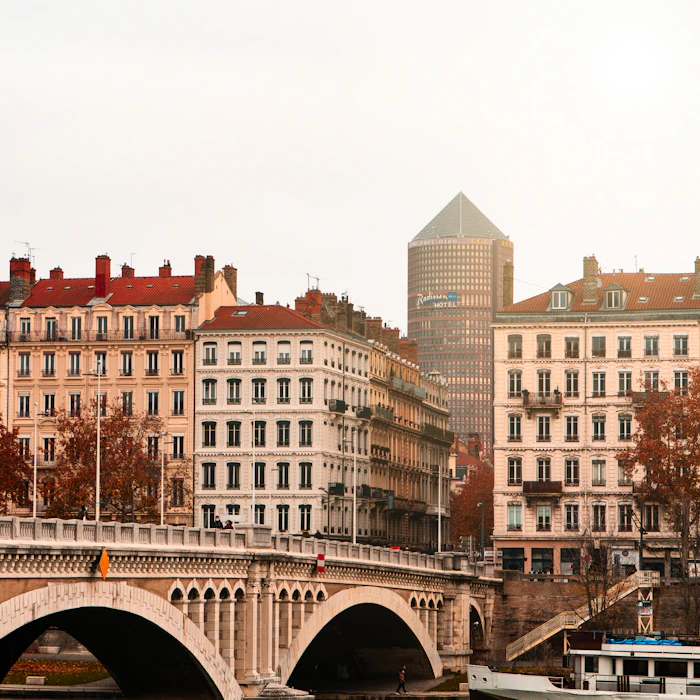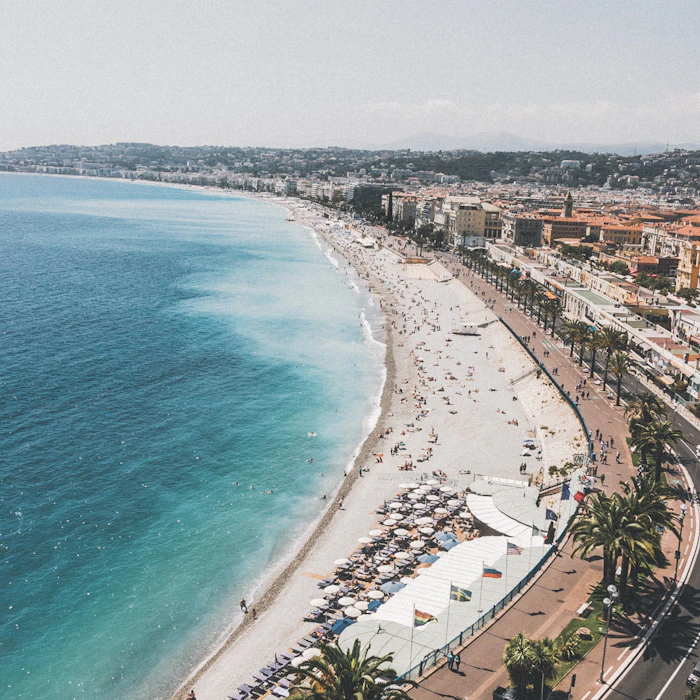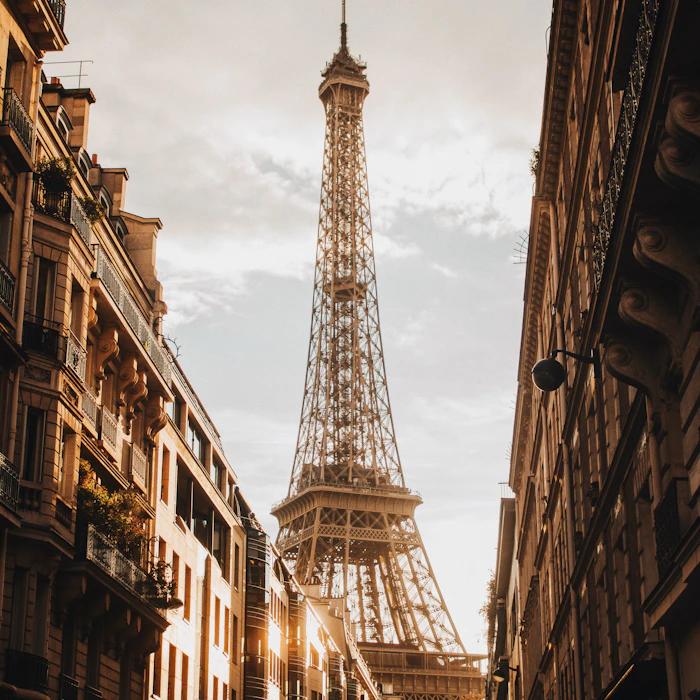


Is Bordeaux in France Safe?
Bordeaux is generally safe for tourists, with a low risk of violent crime. However, remain vigilant against petty crimes like pickpocketing, especially in crowded areas. The city experiences occasional protests and strikes, so avoid confrontations. While the risk of terrorism is low, remain aware of your surroundings. Bordeaux has excellent medical facilities, but some vaccinations may be recommended based on your travel plans.
Safety & Security
Bordeaux is generally considered a safe destination for travelers, but like any major city, it's important to exercise caution and be aware of potential risks.
-
Petty Crime: Pickpocketing and bag snatching can occur in crowded areas, such as public transportation, markets, and tourist hotspots. Remain vigilant and keep valuables secure.
-
Scams: Be wary of common scams like fake petitions, friendship bracelet sellers, and individuals offering to assist with luggage or directions. Politely decline and walk away.
-
Civil Unrest: While rare, protests and demonstrations can occur in Bordeaux. Avoid areas where large crowds have gathered and monitor local news for updates.
-
Terrorism: France has experienced terrorist attacks in recent years. Remain vigilant in public areas and follow the advice of local authorities.
-
Disputes: Alcohol-related incidents and disputes can occur, particularly in the lively nightlife areas. Exercise caution and avoid confrontations.
While Bordeaux is generally safe, it's advisable to take standard precautions, such as not walking alone at night in isolated areas, securing accommodations, and being aware of your surroundings.
Health & Medical
Bordeaux is generally a safe destination for travelers in terms of health risks. However, it's essential to take some precautions to ensure a smooth and healthy trip. Here are some key points to consider:
-
Vaccinations: Ensure your routine vaccinations are up-to-date, including measles, mumps, rubella (MMR), diphtheria, tetanus, and polio. No additional vaccinations are typically required for travel to Bordeaux.
-
Air Quality: Bordeaux has relatively good air quality, but like any urban area, pollution levels can be higher during peak traffic hours. Those with respiratory conditions should take necessary precautions.
-
Insect-Borne Diseases: The risk of insect-borne diseases like malaria or dengue fever is low in Bordeaux. However, it's advisable to use insect repellent, especially during the warmer months, to prevent mosquito bites.
-
Medical Facilities: Bordeaux has excellent medical facilities, including hospitals and clinics that cater to international travelers. Most healthcare professionals speak English, making communication easier for foreign visitors.
-
Water and Food Safety: Tap water is generally safe to drink in Bordeaux. However, it's recommended to stick to bottled or filtered water to avoid any potential issues. Exercise caution when consuming street food or undercooked meat and seafood.
-
Sun Exposure: During the summer months, the sun can be intense in Bordeaux. Use sunscreen, wear protective clothing, and stay hydrated to prevent sunburn and heat-related illnesses.
It's always advisable to purchase comprehensive travel insurance and carry a copy of your medical records, including any prescription medications you may need during your stay in Bordeaux.
Natural Disasters
Bordeaux, located in southwestern France, is generally not prone to major natural disasters. However, travelers should be aware of the following potential risks:
-
Flooding: The city lies along the Garonne River, which can experience flooding during periods of heavy rainfall or rapid snowmelt. While the risk is relatively low, it's advisable to monitor weather conditions and follow local advisories.
-
Storms and Severe Weather: Like many regions in France, Bordeaux can experience thunderstorms, strong winds, and occasional hail during the spring and summer months. These events are typically short-lived but can disrupt travel plans and outdoor activities.
-
Wildfires: While not a significant risk within the city limits, the surrounding Bordeaux region is susceptible to wildfires during hot, dry periods, particularly in forested areas. Travelers should exercise caution and follow local authorities' instructions if visiting nearby natural areas.
-
Earthquakes: France is located in a relatively stable tectonic region, and the risk of a major earthquake in Bordeaux is considered low. However, minor tremors can occur, and it's always advisable to familiarize yourself with safety procedures in case of an earthquake.
Overall, Bordeaux is generally a safe destination in terms of natural disasters. However, as with any travel destination, it's essential to stay informed about current weather conditions, follow local advisories, and take necessary precautions to ensure a safe and enjoyable trip.
Transportation
Bordeaux boasts an efficient and well-connected public transportation system, making it easy for travelers to navigate the city. The tram network, buses, and bike-sharing services provide reliable and affordable options for getting around.
-
Tram Network: The modern tram system is the backbone of Bordeaux's public transportation, with four lines covering most of the city center and suburbs. Trams run frequently and are a convenient way to explore the city.
-
Buses: Complementing the tram network, buses offer additional routes and connections to areas not served by the trams. Buses are generally on schedule and comfortable.
-
Bike-Sharing: For a more eco-friendly and active way to explore, Bordeaux offers a bike-sharing system with numerous stations throughout the city. Cycling is a popular mode of transportation among locals and tourists alike.
-
Road Safety: While driving in Bordeaux is generally safe, be cautious of narrow streets, pedestrians, and cyclists, especially in the historic city center. Parking can be challenging, so consider using public transportation or walking when possible.
-
Accessibility: Bordeaux's public transportation system is continuously improving its accessibility features, with many trams, buses, and stations offering accommodations for travelers with disabilities or mobility issues.
Cultural Norms
Bordeaux is a vibrant city with a rich cultural heritage. As a traveler, it's essential to respect local customs and traditions to ensure a smooth and enjoyable experience. Here are some key points to keep in mind:
-
Religious Customs: Bordeaux has a significant Catholic population, and many churches hold regular services. Visitors should dress modestly and maintain a respectful silence when entering religious sites.
-
Local Festivals: Bordeaux hosts several festivals throughout the year, such as the Bordeaux Wine Festival and the Bordeaux River Festival. Attending these events is an excellent way to immerse yourself in the local culture, but be mindful of any specific dress codes or etiquette guidelines.
-
Wine Culture: Wine is an integral part of Bordeaux's identity. When visiting wineries or participating in wine tastings, it's advisable to familiarize yourself with the proper etiquette, such as not wearing strong fragrances that could interfere with the wine's aroma.
-
Language Considerations: While many locals in Bordeaux understand and speak English, making an effort to learn a few basic French phrases can go a long way in showing respect for the local culture.
-
Dining Etiquette: French dining culture places a strong emphasis on etiquette. Familiarize yourself with basic table manners, such as keeping your hands visible and not resting your elbows on the table.
-
Public Behavior: Bordeaux is a relatively conservative city. Avoid public displays of affection or rowdy behavior that could be seen as disrespectful or offensive.
Emergency Services
Bordeaux has a well-established emergency services infrastructure to assist travelers in case of emergencies. The city's emergency medical services are reliable and equipped to handle various situations. Ambulances are readily available and can be summoned through the standard European emergency number.
-
Emergency Medical Services: Bordeaux has several hospitals and clinics that provide quality medical care. The major hospitals are well-equipped and staffed with experienced medical professionals.
-
Fire and Rescue Services: The city's fire department is well-trained and equipped to handle fire emergencies, as well as other rescue operations, such as natural disasters or accidents.
-
Police Services: Bordeaux has a visible police presence, and the local law enforcement agencies are generally responsive to emergencies involving tourists. However, it's advisable to exercise caution and be aware of your surroundings.
-
Tourist Assistance Services: While there are no dedicated tourist assistance services, the local authorities and tourism offices can provide guidance and support to travelers in case of emergencies or other issues.
It's important to note that language barriers can sometimes pose a challenge when seeking emergency services. Carrying a phrase book or having a translation app handy can be helpful in communicating effectively during emergencies.
Frequently Asked Questions

Is Bordeaux safe for tourists?
Bordeaux is generally a safe destination for tourists. However, as with any major city, it's advisable to exercise caution, especially in crowded areas and at night. Petty crimes like pickpocketing and bag snatching can occur. Remain vigilant and keep valuables secure.
Is Bordeaux safe for solo female travelers?
Bordeaux is relatively safe for solo female travelers, but it's still important to take precautions. Avoid walking alone at night in isolated areas, and be cautious when accepting drinks from strangers. Dress modestly and be aware of your surroundings.
Is Bordeaux safe for families?
Bordeaux is a family-friendly destination with plenty of attractions and activities suitable for children. Parks, museums, and pedestrian-friendly areas make it easy to explore with kids. However, be mindful of pickpockets and keep a close eye on children in crowded places.
Is Bordeaux LGBTQ+ friendly?
France is generally LGBTQ+-friendly, with same-sex marriage and anti-discrimination laws in place. Bordeaux has a vibrant LGBTQ+ community and hosts annual Pride events. However, discretion is still advised in public displays of affection.
Do you need a visa to go to Bordeaux?
Citizens of most Western countries, including the United States, Canada, and the European Union, do not need a visa for stays up to 90 days in France for tourism purposes. However, a valid passport is required for all visitors.
Can you drink tap water in Bordeaux?
The tap water in Bordeaux is safe to drink and meets all quality standards. However, some visitors may prefer bottled water due to the slightly different taste or mineral content.
What is the currency in Bordeaux?
The official currency in Bordeaux and throughout France is the Euro (EUR). Major credit cards are widely accepted, but it's advisable to carry some cash for smaller purchases.
France Travel Advisory
The following government travel advisories provide additional helpful resources for your destination to stay safe and informed.
Related Content
- LOW RISK
🇫🇷 France
France is generally safe for tourists, but petty crime like pickpocketing and bag snatching is common in major cities and tourist areas. Terrorism remains a risk, with occasional attacks targeting public spaces. Civil unrest can disrupt travel plans, so monitor news and avoid protests. While violent crime is relatively low, be cautious in isolated areas, especially at night. Familiarize yourself with local laws and customs to avoid cultural misunderstandings.
- LOW RISK
🇫🇷 Bellevue, France
Bellevue in France is generally safe for tourists, with low crime rates and minimal political tensions. However, be vigilant against petty crimes like pickpocketing in crowded areas. The region has a low risk of natural disasters, but heavy rainfall can occasionally cause flooding. Public transportation is reliable and well-maintained, ensuring safe travel within the city.
- LOW RISK
🇫🇷 Lyon, France
Lyon is generally a safe city for travelers, with low violent crime rates. However, be vigilant against petty crimes like pickpocketing in crowded areas and on public transport. Protests and civil unrest occasionally occur, so avoid demonstrations. Lyon has excellent medical facilities, but some vaccinations may be recommended depending on your travel plans. Overall, Lyon is a secure destination with a few reasonable precautions.
- MEDIUM RISK
🇫🇷 Marseille, France
Marseille has a higher crime rate than other French cities, with risks of petty theft and muggings, especially around tourist hotspots. Violent crime is relatively low but disputes can escalate quickly. Travelers should remain vigilant and avoid isolated areas, especially at night. The city has seen sporadic civil unrest and terrorist threats, though the overall risk is moderate. Adequate medical facilities are available for most routine issues.
- LOW RISK
🇫🇷 Nanterre, France
Nanterre is generally safe for tourists, with petty crime being the primary concern. Violent crime rates are low, but remain vigilant in crowded areas and at night. Civil unrest occasionally occurs, so monitor local news. Terrorism is an unlikely but potential risk in major French cities. Medical facilities are adequate, but no major health risks exist for travelers.
- LOW RISK
🇫🇷 Nice, France
Nice is generally safe for tourists, but petty crime like pickpocketing is common in crowded areas. While violent crime is rare, terrorist threats remain a concern in France. The city has good medical facilities, but travelers should take precautions against mosquito-borne diseases. Natural disasters are not a major risk, but flooding can occur during heavy rains. Public transportation is reliable, but road safety requires caution due to aggressive driving.
- MEDIUM RISK
🇫🇷 Paris, France
Paris is generally safe for tourists, but petty crimes like pickpocketing and bag snatching are common in crowded areas. Remain vigilant in tourist hotspots and on public transportation. While the risk of terrorism exists, it's relatively low. Violent crime rates are also low, but disputes and scams occasionally target tourists. Avoid confrontations and exercise caution, especially at night in certain neighborhoods.
- LOW RISK
🇫🇷 Strasbourg, France
Strasbourg is generally safe for tourists, with low violent crime rates. However, petty crimes like pickpocketing occur in crowded areas, so remain vigilant. The risk of terrorism is present but relatively low. Occasional protests related to political tensions may disrupt transportation. Overall, Strasbourg is a secure destination with proper precautions.
- LOW RISK
🇫🇷 Toulouse, France
Toulouse is generally safe for tourists, with low violent crime rates. However, petty crimes like pickpocketing are common in crowded areas. Protests and strikes can disrupt transportation occasionally. Travelers should remain vigilant in busy tourist spots and during public events. The city has excellent medical facilities, but some vaccinations may be recommended for certain travelers.













